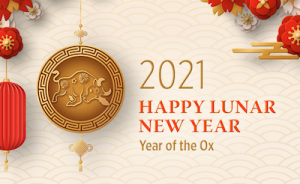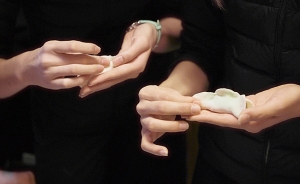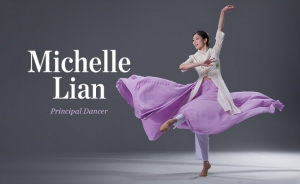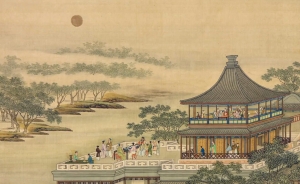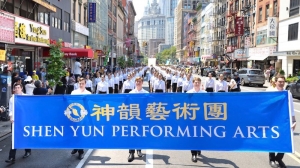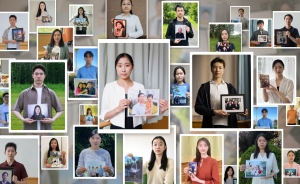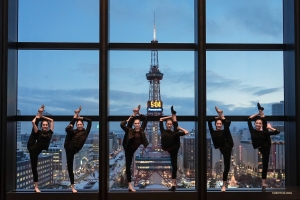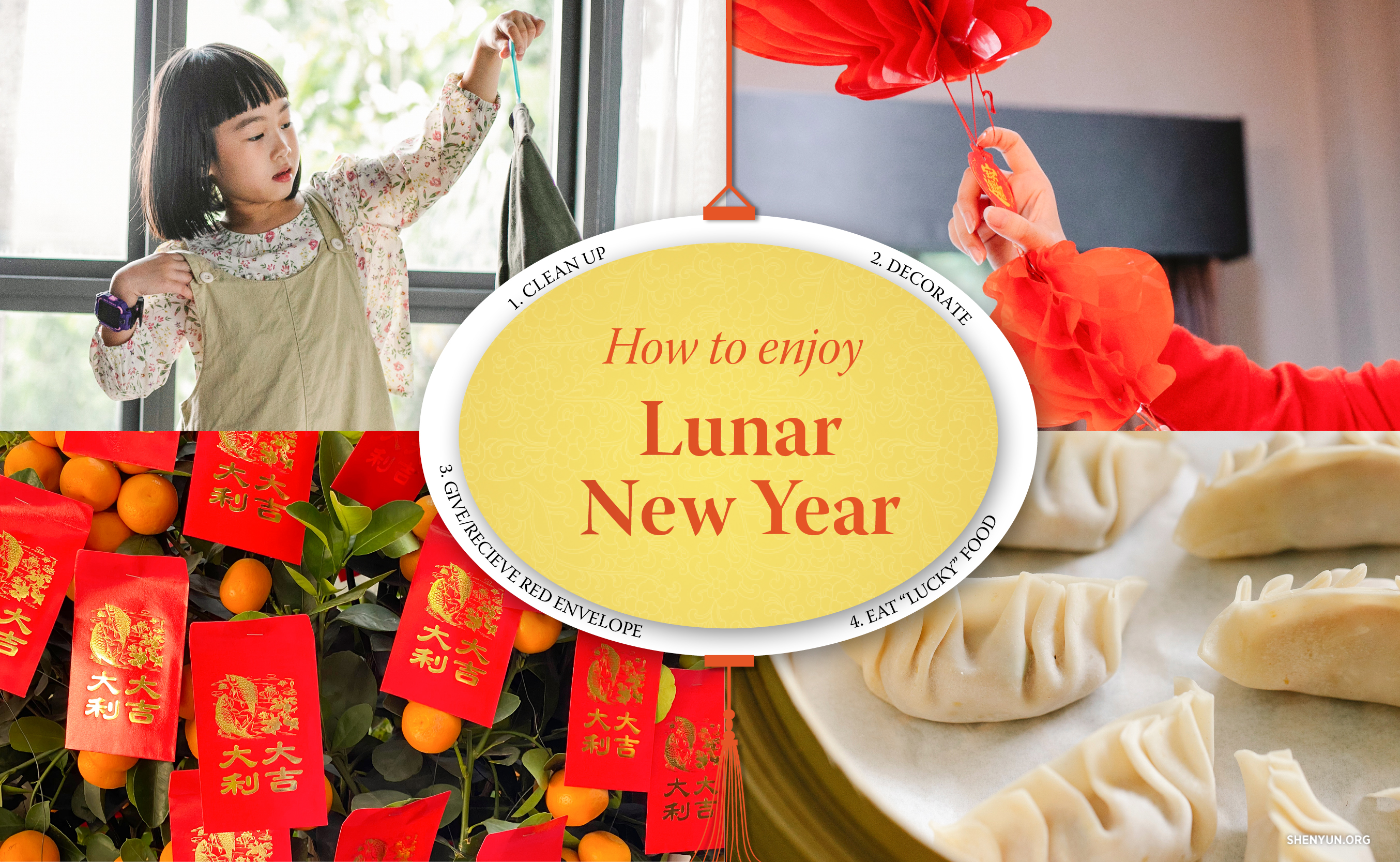
집에서 설을 즐기는 방법
빨간 봉투를 나눠주고, 바닥을 쓸고, 그런데 이날은 생선을 뒤집으면 안 돼요!
설날, 중국에서 설은 최대의 연휴이자(총 15일!) 가장 중요한 명절입니다. 청소와 축하, 새 옷과 새로운 시작을 위한 시간이기 때문이죠. 설날은 음력이라서 매년 1월 또는 2월 중에 날짜가 정해집니다.
2023년은 설날이 1월 22일입니다. 전통적으로 설날은 신과 조상에게 경의를 표하는 외에 이날 하는 독특한 관습들이 있는데요, 집(또는 기숙사)에서도 세계 최대 명절 중 하나인 설을 맞이하는 관습을 몇 가지 소개합니다.
관습 #1: 청소하기
설날은 새로 시작되는 해입니다. 누구나 새로운 시작을 좋아할 텐데요, 그래서 설 전 9일간은 집 안 구석구석을 대청소합니다. 이러한 방식의 축하 활동은 가볍게 볼 게 아니에요. 빗자루가 먼지뿐만 아니라 불운도 쓸어낸다고 하거든요. 구석부터 방 한가운데까지 다 쓸어서 뒷문을 통해 불운을 밖으로 내보내는 것이 중요합니다. 하지만 설 당일에는 빗자루와 쓰레받기를 조심스레 놓아둬서, 새로 들어온 행운을 실수로 쓸어 버리지 않고 집 안에 머물게 해야 합니다. 설날 대청소는 금물이랍니다.
관습 #2: 빨간 봉투 나눠주기
배우자가 있는 분이세요? 아니면 손자 손녀가 있으신가요? 그럼 지갑을 준비하세요. 중국에서는 설에 부부와 조부모가 미혼인 성인이나 어린이에게 돈이 든 작은 빨간 봉투를 건네는 즐거운 전통이 있답니다. 이러한 ‘행운의 돈’이 어린이들을 악한 기운에서 보호하고 새해에 행운을 가져다준다고 믿는답니다. 행운을 더 키우려면, 봉투를 열지 말고 베개 밑에 넣어두고서 일곱 밤을 자고 나서 여는 게 좋습니다.
얼마를 줘야 하는 건 없습니다. 그런데 관대함보다 더 중요한 것이 돈을 똑같이 주는 것이라네요. 중국인들은 특히 8과 그 동음이의어를 좋아합니다. 왜 8일까요? 중국어에서 ‘八[bā]’는 번영을 뜻하는 ‘發[fā]’와 비슷하게 들리기 때문입니다. 홀수로 떨어지는 액수는 장례식장에서 내는 것이지, 절대 선물로 주면 안 된답니다!
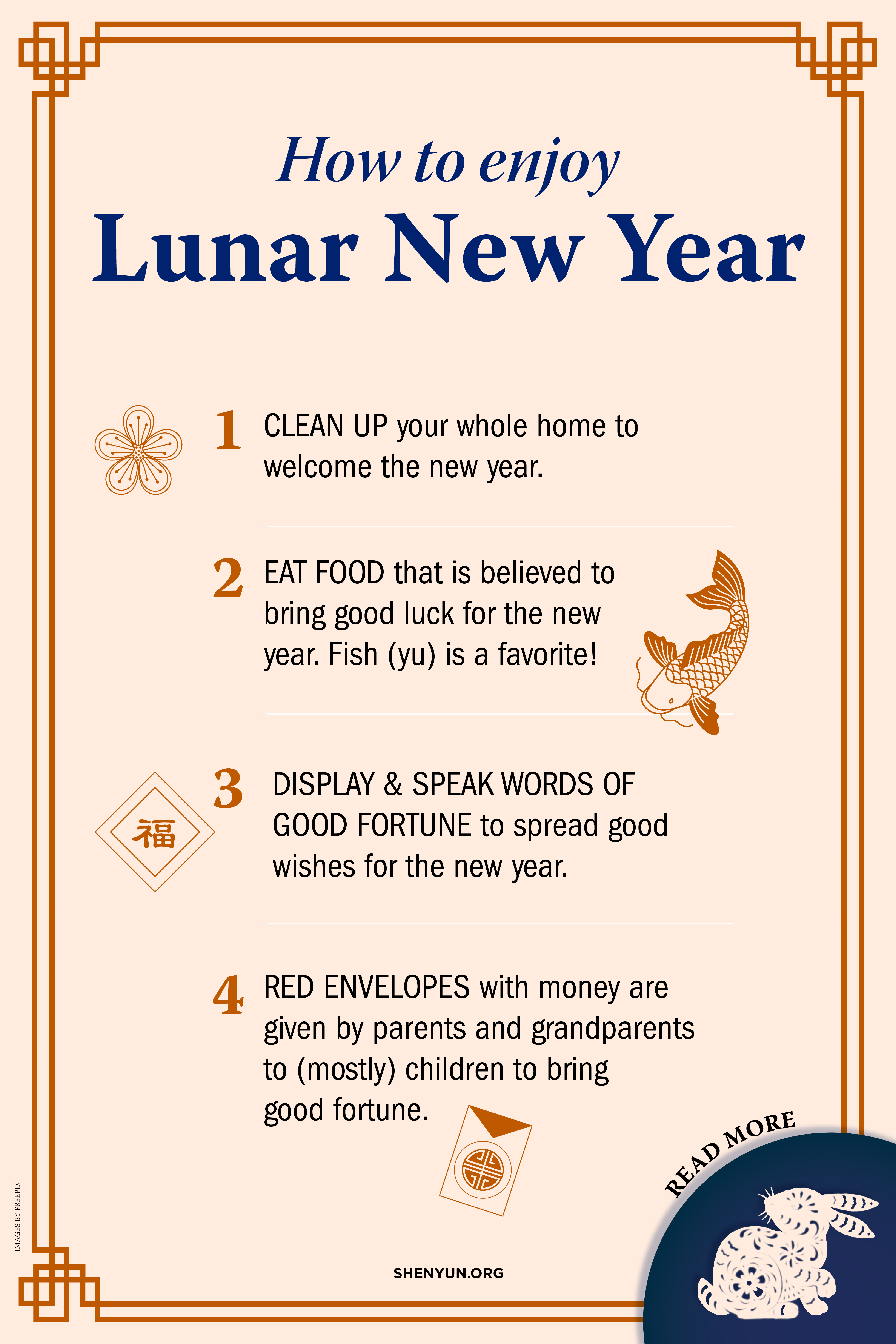
관습 #3: 행운의 문구 붙이고 말하기
중국의 또 다른 전통 풍습은 창문과 문 주변에 새해의 좋은 기운을 전하는 문구를 붙이는 것입니다. 이맘때쯤이면 금색이나 검정 글씨(문자)가 적힌 빨간 종이를 본 적이 있으실 겁니다. 이는 단순한 장식이 아니라 긍정적인 메시지를 담고 있습니다.
가장 좋아하는 것은 봄을 기념하기 위한 봄의 캐릭터입니다. 네, 설날은 겨울에 있지만 봄이 멀지 않았음을 알리는 날이기도 합니다. 중국에서는 이런 이유로 설날을 춘절이라고 부릅니다. 복(福), 수(壽) 등 행운, 행복, 건강, 장수를 뜻하는 글자도 많이 쓰입니다.
가족이나 친구 사이에서도 ‘좋은 일만 가득하길’ 또는 ‘모든 소원이 이루어지길’이라는 뜻의 ‘완시루이[萬事如意 wan shi ru yi]’ 같은 특정 문구가 쓰입니다.
관습 #4: 잘 먹되, 생선은 뒤집지 마세요!
성탄절이나 추수감사절 때처럼 설 전날 만찬은 가족이 재회한 것을 축하하는 음식의 향연입니다. 메뉴는 지역마다 다르지만, 생선 요리가 가장 인기 있습니다. 왜 그럴까요? 생선을 뜻하는 중국어 단어 ‘漁[yú]’가 풍요를 뜻하는 ‘餘[yú]’와 동음이의어이기 때문입니다.
중국요리에서는 생선을 한 접시에 통째로 담아 한 번에 한 면씩 먹는 경우가 많습니다. 윗부분을 다 먹은 후에는 생선을 뒤집지 말고 등뼈를 들어내야 하는데, 잉여분이 적자로 바뀌는 것을 방지하기 위해서라고 하네요.
다른 인기 음식:
-만두, 특히 중국 북방 만두는 반죽을 금괴와 비슷한 모양으로 합니다.
-중국에서 귤을 뜻하는 ‘橘[jú]’는 행운을 뜻하는 ‘吉[jí]’와 비슷하게 들립니다.
-다산을 상징하는 멜론과 해바라기 씨.
-설 떡인 녠가오(年糕)는 중국 동부에서 인기가 높습니다. 동음이의어인 찰떡[黏糕, niángāo]과 마찬가지로 녠가오도 쫄깃합니다.
대체로 설날은 가족이 함께 모여 즐겁게 지내며 다가오는 한 해의 희망을 품는 시간입니다. 설날 파티에 참여하고 싶으시다면 엄마, 할머니, 아들, 사촌 등 누구에게나 전화를 걸어 새해 복 많이 받으시라고 해보세요!
새해[nian] 션윈 가족들 모두의 가정에 번영[fa], 풍요[yu], 행운[ji], 그리고 건강과 행복이 가득하시길 기원합니다!


